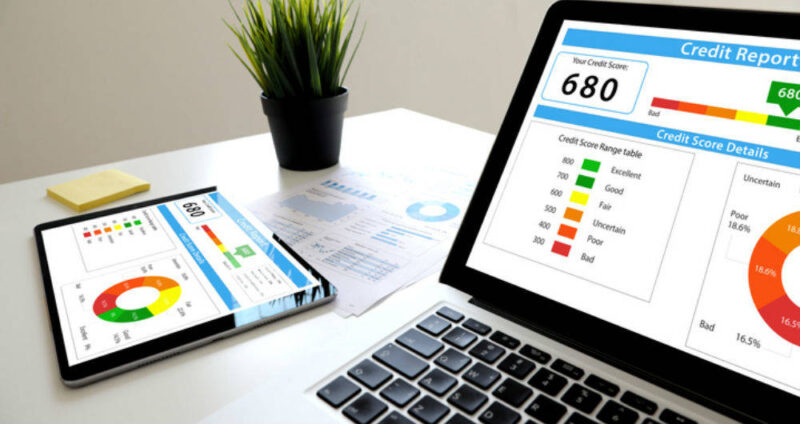Have you ever been turned down for a credit card or loan? If so, one of the first things the lender did was check your credit report. A credit bureau is a company that collects and maintains information about consumers’ credit history. This information is used to create credit reports, which are then used by lenders to make decisions about whether or not to extend credit. In this blog post, we will discuss what credit bureaus integration is.
How can you get your credit report and score from the bureau?

Everyone is entitled to a free credit report from the three main credit bureaus – Equifax, Experian and TransUnion – once every 12 months. You can request your report online, by phone or by mail. If you need your report right away, you can also order it for a fee. Your credit score is not included in your free credit report, but you can purchase it separately from the credit bureau or several other companies.
When you order your score, you will also receive a copy of your credit report. Be sure to review both your report and your score carefully to ensure accuracy and to look for any signs of fraud or identity theft. If you find any errors, be sure to notify the credit bureau so that they can investigate and correct the inaccuracies. By law, the credit bureau has 30 days to respond to your dispute. If you are dissatisfied with their response, you can file a complaint with the Consumer Financial Protection Bureau.
Why is it important to know your credit score and report?

Knowing your credit score and report is important because it helps you understand your financial health. This information can help you make informed choices about how to improve your credit score. Additionally, employers, landlords, and lenders often use credit scores as part of their screening process. A high credit score indicates that you’re a responsible borrower who is likely to repay debts on time. A low credit score may result in higher interest rates and deny you access to lines of credit. By monitoring your credit score and report, you can proactively work to improve your financial standing.
How can you improve your credit rating if it’s not ideal?
Credit ratings are important for so many aspects of our lives. A good credit rating can make it easier to get a loan, buy a car, or even rent an apartment. But what if your credit rating isn’t as good as you would like? Fortunately, there are a few things you can do to improve your credit rating. One of the most important things is to make all of your payments on time.
This includes not only your credit card and loan payments, but also utility bills and other recurring expenses. Another important factor is your credit utilization ratio, which is the amount of credit you are using compared to the amount of credit you have available. Keeping this ratio low will help to improve your credit score. Finally, make sure to check your credit report regularly for errors and correct them as soon as possible. By following these steps, you can gradually improve your credit rating and get back on track financially.
What are some of the benefits of having good credit history and rating?

Having a good credit score is important for many reasons. It can help you get approved for a loan, lower your interest rates, and rent an apartment. A good credit score signals to landlords and lenders that you’re responsible and likely to repay your debts. A bad credit score, on the other hand, could make it harder for you to get a loan or rent an apartment. If you’re thinking about applying for a mortgage, lenders will look at your credit history to determine whether you’re a good candidate for a loan.
If you have a history of making late payments or defaulting on loans, you may have trouble getting approved for a mortgage. Even if you are approved, you may end up with a higher interest rate. If you’re renting an apartment, your credit score may also be a factor in whether or not you’re approved. Landlords often check credit scores to screen applicants and determine who is likely to pay their rent on time. If you have a low credit score, you may be required to pay a higher security deposit or be denied altogether. In general, having a good credit score can make it easier to get approved for loans and rent apartments. It’s important to keep tabs on your credit score and take steps to improve it if necessary.
How can you protect your credit information from identity theft or fraud?

There are a few simple steps you can take to protect your credit information from identity theft or fraud. First, make sure to shred any documents that contain your personal information before disposing of them. This includes things like bank statements, credit card bills, and tax returns. Second, never give out your personal information to anyone unless you are certain they are legitimate. This includes things like your Social Security number, date of birth, and your mother’s maiden name. Finally, be sure to keep an eye on your credit report for any suspicious activity. You can order a free copy of your report from each of the major credit reporting agencies once per year. If you see anything that looks wrong, don’t hesitate to contact the agency and file a dispute. By taking these simple steps, you can help protect yourself from identity theft and fraud.
Conclusion paragraph:
A credit bureau is a company that collects and maintains information about consumers’ credit history. This information is used to create credit reports and scores, which are then made available to lenders, employers, and other interested parties. Everyone needs to know their credit score and report because it can affect many aspects of their lives – from getting a job or renting an apartment, to qualifying for a loan or a low-interest rate. If your credit rating isn’t ideal, there are steps you can take to improve it. The benefits of having good credit history and rating are many, so it’s well worth the effort to protect your information and work on building up your score.


